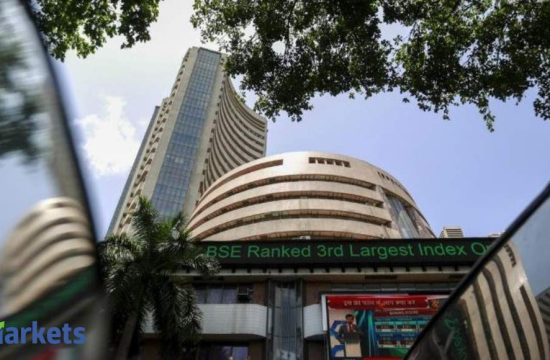
Domestic stocks may open on a negative note on Thursday amid weak cues from Asian stocks, which weakened after Fed Chair Jerome Powell highlighted uncertainty about the economic rebound.
Here’s breaking down the pre-market actions:
STATE OF THE MARKETS
SGX Nifty signals negative start
Nifty futures on the Singapore Exchange traded 22.5 points, or 0.19 per cent lower at 11,581.50, in signs that Dalal Street was headed for a negative start on Thursday.
Tech View: Nifty clears key hurdles, eyes upside
Nifty50 rose for the second straight session on Wednesday and formed a bullish candle on the daily chart. During the day, the index broke above its 61.8 per cent retracement of the decline from 11,794 to 11,185 level, and also its previous swing high of 11,585 to close just shy of the 11,600 mark. Analysts said the index has the potential to move towards its August high of 11,794 level in the coming sessions.
Asian markets weak tracking US stocks
Japan’s Nikkei 225 index fell 0.20 per cent or 46.97 points to 23,428.56, a day after Japan’s parliament elected Yoshihide Suga as the country’s new prime minister. In Hong Kong, Hang Seng declined 1.18 per cent, or 297 points, to 24,432.55. China’s Shanghai Composite index dipped 0.62 per cent, or 20.76 points, to 3,263.43. South Korea’s Kospi declined 0.68 per cent or 18 points to 2,419.45.
Oil steady as demand worries revive
Oil prices were mixed in early trade on Thursday, just clinging to overnight gains, as concerns about weak fuel demand were in the frame again after Hurricane Sally blasted through the Gulf of Mexico into the southeastern United States. US WTI crude futures were flat at $ 40.16 a barrel, after jumping 4.9 per cent on Wednesday. Brent crude futures gained 5 cents, or 0.1 per cent, to $ 42.27 a barrel, after climbing 4.2 per cent on Wednesday.
US stocks end mixed as tech shares lag
US stocks closed mixed as tech shares struggled, weighing on the market.On Wednesday, the Dow Jones Industrial Average increased 36.78 points, or 0.13 per cent, to 28,032.38. The S&P 500 fell 15.71 points, or 0.46 per cent, to 3,385.49. The Nasdaq Composite Index decreased 139.85 points, or 1.25 per cent, to 11,050.47.
Happiest Minds listing today
Happiest Minds is set to make its debut on the bourses . The issue, which was sold between September 7 and September 9 in the price band of Rs 165-166, was subscribed 151 times.
FIIs turn a bit cautious amid Street euphoria
On Wednesday, FIIs net shorted index futures by a cumulative 1,309 contracts, NSE data show, to hedge their cash positions even as bulls expanded the market range by 500 points to 11,500-12,000 for monthly expiry. The last time FIIs were cumulatively net short by 2,030 contracts was on July 16 when the Nifty closed at 10,740.
FIIs buy Rs 264.66 cr worth of stocks
Net-net, foreign portfolio investors (FPIs) were buyers of domestic stocks to the tune of Rs 264.66 crore, data available with NSE suggested. DIIs were net sellers to the tune of Rs 212.21 crore, data suggests.
FPIs turn net short in index futures
India’s mounting Covid cases and simmering border tensions with China haven’t dissuaded foreign inflows into the cash market. But as an early sign of caution, FIIs have turned net short index futures — Nifty and Bank Nifty — for the first time since July 16. On Wednesday, FIIs net shorted index futures by a cumulative 1,309 contracts, NSE data show, to hedge their cash positions even as bulls expanded the market range by 500 points to 11,500-12,000 for monthly expiry. The last time FIIs were cumulatively net short by 2,030 contracts was on July 16 when the Nifty closed at 10,740.
MONEY MARKETS
Rupee: The rupee strengthened by 12 paise to settle at 73.52 against the US dollar on Wednesday supported by positive domestic equities and weak American currency.
10-year bonds: India 10-year bond yield fell 0.02 per cent to 5.99 after trading in 5.99-6.04 range
Call rates: The overnight call money rate weighted average stood at 3.41 per cent, according to RBI data. It moved in a range of 1.80-4.05 per cent.
DATA/EVENTS TO TRACK
- Japan Stock Investment by Foreigners 12/SEP (05:20 am)
- Australia Full Time Employment Chg AUG (07.00 am)
- Australia Unemployment Rate AUG (07.00 am)
- BoJ Interest Rate Decision (08.30 am)
- EU New Car Registrations YoY JUL (11:30 am)
- Euro Area Inflation Rate YoY Final AUG (02.30 pm)
- BoE Interest Rate Decision (04.30 pm)
- UK MPC Meeting Minutes (04.30 pm)
- US Initial Jobless Claims 12/SEP (06.00 pm)
- US Housing Starts AUG (06:00 pm)
MACROS
Fed signals rates will stay near zero for 3 years… The Federal Reserve left interest rates near zero and signaled it would hold them there through at least 2023 to help the US economy recover from the coronavirus pandemic. The Federal Open Market Committee “expects to maintain an accommodative stance of monetary policy†until it achieves inflation averaging 2% over time and longer-term inflation expectations remain well anchored at 2 per cent, the bank said in a statement Wednesday following a two-day policy meeting.
Petrol demand back at pre-Covid levels… Petrol sales have fully recovered to pre-Covid levels while diesel sales have improved significantly, signalling revival of economic activity and the willingness of people to get on with their lives despite the record rise in Covid-19 cases. In the first half of September, petrol sales increased by 2% from a year ago and 7% from August. Diesel sales were 5.5% lower than the year-ago month but 20% higher than that in the previous month, according to data from state-run fuel retailers who control nearly 90% of the domestic market.
LS clears key banking bill… The Lok Sabha on Wednesday passed the Banking Regulation (Amendment) Bill, 2020, which seeks to bring cooperative banks under the supervision of RBI to improve their governance and protect depositors’ money while empowering the banking regulator to prepare a restructuring or amalgamation scheme for a struggling bank without first placing it under a moratorium.
15 states seek to change labour laws… As many as 15 states have sought the Centre’s approval to make changes to three key labour laws, to significantly improve ease of doing business and attract more investments. The states are Arunachal Pradesh, Assam, Bihar, Chhattisgarh, Goa, Gujarat, Haryana, Himachal Pradesh, Karnataka, Madhya Pradesh, Odisha, Punjab, Tripura, Uttarakhand and Uttar Pradesh.
Das says depositors’ interest must be protected… RBI governor Shaktikanta Das warned that India’s economic recovery will be gradual and argued strongly in favour of protecting the interest of depositors amid a contentious Supreme Court hearing on waiver of interest during the loan-moratorium period. India’s lead economic indicators, which had shown an uptick in June and July, appear to be levelling off, Das said at an event organised by Ficci on Wednesday.
Price surge brings out DeMon gold… The gold that had changed hands four years ago, in a flurry of panic deals on the night of Demonetisation, is now finding its way back into the market. As the price of the yellow metal surged amid a hunt for a safe-haven asset and the uncertainty caused by the Covid-19 pandemic, people who had bought gold to launder unaccounted cash on November 8, 2016, are offloading it in the market
Cayman Island new haven for FPIs… A sleepy Caribbean island country is emerging as a preferred gateway for various foreign investors to route their investments into India. With the Sebi tweaking rules for overseas funds with opaque structures in 2019 and foreigners finding little incentive to invest in the country’s stocks through tax-friendly jurisdictions, Cayman Islands are gaining popularity among them for their relatively lower operational costs. Cayman does not have a tax treaty with India. Currently, there are 329 FPIs investing in India through the Cayman Islands against less than 100 until a few years ago.
OECD projects bleak outlook for India…. The OECD forecast the Indian economy to shrink 10.2% this fiscal year, deeper than its projection of a 3.7% contraction in June. While the OECD raised the projection for global output — to a contraction of 4.5% in 2020 against the previous view of a 6% fall — based largely on improvements in China and the US, its Interim Economic Outlook report released on Wednesday cited the prolonged spread of the virus for the downgrade in India’s growth.









